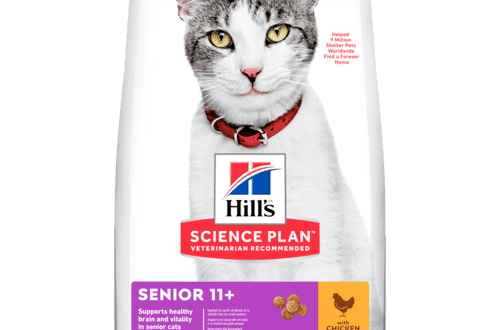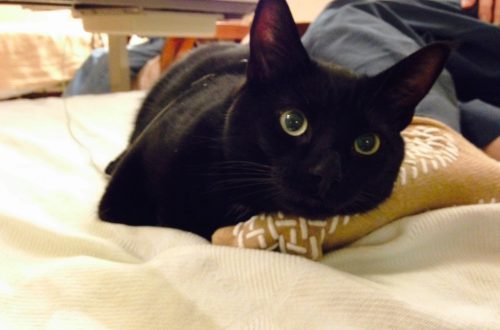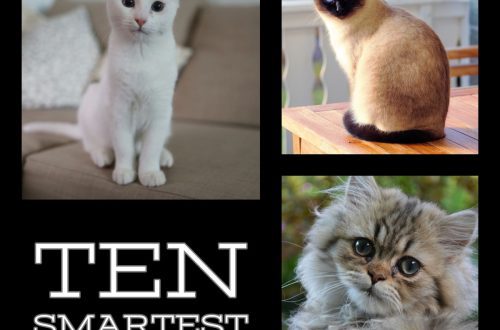
Bloating in a cat: causes, solution, prevention
When should you contact the veterinarian and how to help your four-legged friend avoid problems with the organs of the gastrointestinal tract?
Contents
Watch your pet’s habits
A healthy adult cat eats small meals throughout the day or twice a day: in the morning and in the evening. Even in the apartment, the pet repeats the natural cycle for him in the wild, consisting of hunting or playing, eating, caring for his fur coat and resting for the next game. Activity and rest alternate. After eating, the cat may slightly increase the volume of the abdomen. Your task is to organize a place for the pet to rest, to calmly absorb nutrients. And keep an eye on whether your pet is prone to overeating. If the cat loves to eat too much, and you do not have the opportunity to control each portion eaten, it is better to equip the automatic feeder to dispense food in portions at a certain time.
An increase in the volume of the abdomen due to heavy drinking in a healthy state is usually not threatened by cats. On the contrary, they need to be additionally motivated to consume a sufficient amount of fluid. A drinking fountain and containers with clean water in several corners of the house will help. An adult pet needs to drink 30-40 ml of water per kilogram of body weight every day.
Watch the habits of your four-legged friend in order to respond as quickly as possible to uncharacteristic behavior for him, signals about a deterioration in well-being. Sometimes a cat copes with a slight ailment on its own, but there is no guarantee that the problem that has arisen once will not make itself felt again.

Symptoms of bloating in a cat
What are the symptoms of bloating in a cat? Is it really necessary to rush to an appointment with a veterinarian?
Symptoms can vary depending on the cause of the swelling. The pet’s belly increases in volume, may become hard, the cat becomes restless, her breathing quickens. The pet can vocalize – this indicates pain. The condition may be accompanied by other symptoms: nausea, flatulence, lack of appetite, etc.
If the pet suddenly became ill, the stomach swelled up within an hour, you need to urgently go to the veterinary clinic. Try to call the medical facility before arrival and explain the situation, so the pet will be helped faster. In the case of acute bloating in a cat, the clock counts, you need to rush to the veterinarian. It is possible to help a four-legged friend only after finding out the cause of the ailment. Only a veterinarian can diagnose.
Causes of bloating
The causes of bloating in cats are so varied that a veterinary examination, x-ray, and ultrasound may be required to identify them.
Treatment will vary, depending on the cause of the problem. Therefore, you should not self-medicate at home, it is better to call a veterinarian, explain the situation and coordinate actions.
Most often, bloating in a cat is caused by:
errors in feeding or a sharp transition to food unusual for a pet,
internal parasites,
ingestion of a foreign object in the gastrointestinal tract,
accumulation of fluid in the abdominal cavity due to any health problems.
Be sure to tell the veterinarian what external factors, health problems, and what kind of food consumption preceded the deterioration of the pet’s well-being. This will help to diagnose, provide assistance and prescribe restorative treatment.

Maintaining a Healthy Cat’s Gastrointestinal Tract
Whatever the causes of bloating in cats, this malaise becomes a significant shock to the body. Be sure to follow all the instructions of the veterinarian. Since the problem directly affects the gastrointestinal tract, we recommend that you consult with a veterinary nutritionist and adjust your pet’s diet.
Choose a balanced, complete food for your cat that has meat as the #1 ingredient. It is better to combine wet and dry food within the same brand, but it is not recommended to combine products from the refrigerator and ready-made food: this leads to an imbalance of nutrients. If you are preparing your own food, discuss the diet with your veterinary nutritionist.
The basis of your cat’s health and longevity is a balanced diet, comfortable living conditions, regular preventive treatment for parasites, and adherence to the vaccination schedule.
It is advisable not to let the cat out on its own: this is dangerous for many reasons. Often the cause of problems with the gastrointestinal tract is something harmful that the cat picked up and ate on the street. If you want to go for a walk with your pet, walk it on a harness, so you can protect your pet from many dangers.
Try to protect your cat from stress. Often diseases develop against the background of constant nervous tension. Repair, relocation, transition to a new type of feeding – make sure that there are fewer such surprises in your cat’s life. A constant daily routine is exactly what your ward needs.
We wish health to your pets! Your opinion is important to us! Do you spoil your pet often? Tell us, please, what is a treat for you and your pet? For participation, we give a set of cool stickers in Telegram! Thanks for participating!





